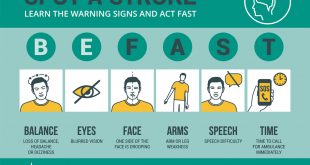Cholesterol is a natural substance that the body produces through the liver. It’s waxy and circulates through the bloodstream, feeding the heart and brain. But when cholesterol is derived from foods like saturated fats and trans fats, the body overproduces LDL, which is the “bad” cholesterol.
HDL is the “good” cholesterol our bodies crave. Without HDL, our brains would not function properly, and we would suffer from other bodily disorders, like heart attacks and strokes. HDL helps to remove the bad cholesterol (LDL) from the body. High levels of LDL may also adversely affect overall health by causing atherosclerosis (plaque in the arteries), cardiovascular disease, and other disorders.
Cholesterol Numbers
Your total cholesterol is made up of both LDL and HDL numbers. Your doctor may order tests in order to check your numbers. The healthiest combination of both types of cholesterol measures HDL, good cholesterol,) around 40, and LDL, bad cholesterol,) around 100.
Risk Factors
Cholesterol, along with triglycerides in the blood, can form atherosclerosis, which as previously mentioned is the plaque that builds up in the arteries. Excessive plaque can increase the chances of a coronary heart attack, heart disease, stroke, and other related issues. Triglycerides are the fat that is stored in the bloodstream from the excess fat in our diets. Triglycerides combine with the high LDL level and create harmful plaque build-up.
Diet & Exercise
Because high levels of LDL and triglycerides are both associated with food intake and the body’s inability to burn fat, adopting healthier habits can help lower cholesterol naturally.
• Eat a healthy diet
• Quit smoking (contributes to atherosclerosis)
• Start a regular exercise program
• Cut back on alcohol and processed foods
Incorporate Healthy Foods and Nutrients
in Your Diet
A significant contributor to successfully lowering LDL is the addition of soluble fiber, omega-3 fatty acids, mono-saturated fatty acids (MUFAs), powerful antioxidants and lutein, to your diet. However, in order to see the benefit of ultimately lowering bad cholesterol, an overall healthy diet must be maintained. This includes decreasing, and in some cases, completely eliminating processed foods from your diet. Cholesterol-lowering foods can drop your bad cholesterol levels by 5-10% within a few weeks; your cardiologist can speak with you about a personalized dietary plan.
Medications
The most common cholesterol-lowering drugs are statins. In recent years there have been other medication developments that may help to lower your total cholesterol levels.
It’s best to speak with your physician before changing your diet or exercise program. Your doctor will develop a strategy to suit your specific needs, along with a coordinated medication and lifestyle strategy.
Bradenton Research Center
Pharmaceutical companies are consistently researching new promising medications and treatment options to slow the progression of diseases and conditions and to find a cure. By participating in studies, you help to advance research and the availability of new drugs to other patients in need, like you.
Bradenton Research Center offers numerous medical studies, one in particular, is a focused on a new medication that may significantly decrease the chances of someone having a stroke, heart attack or peripheral arterial disease and decrease directly related fatalities.
This drug being studied, may decrease the chances of someone having another stroke, heart attack, multiple strokes, other vascular disorders, and it may help patients lose weight.
For over 25 years, Bradenton Research has provided clinical research trials for patients and their families for a wide variety of medical conditions. Patients enrolled in our studies are closely monitored by our research physicians and coordinators. All study-related care and medication is provided to our patients at no cost.
To find out more or to participate in a study, please contact Bradenton Research Center today at (941) 708-0005.
 Southwest Florida's Health and Wellness Magazine Health and Wellness Articles
Southwest Florida's Health and Wellness Magazine Health and Wellness Articles

